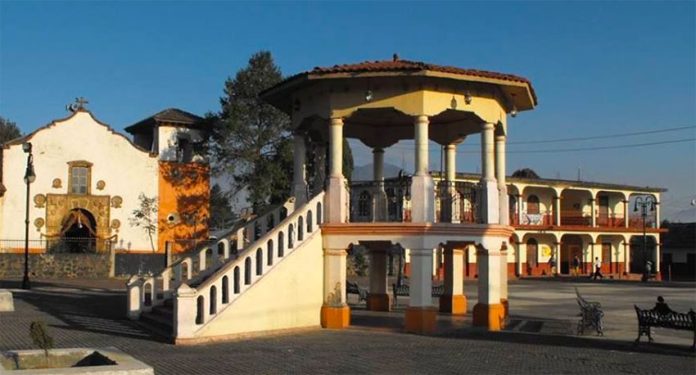There’s an urban legend in central Michoacán, on the road from Uruapan to Guadalajara.
The route winds its way through the mighty cones of defunct volcanoes, now covered in avocado groves which thrive in the rich igneous soil. Along this route sits the town of Aranza. There’s not much more to it than a strip of houses straddling one of the few straight sections of the road.
Today, avocado is big business, but that has only been the case for the past 20 years.
Previously, the locals had a different scheme for making a quick buck.
As cars sped through the town, they might suddenly see the emergence of a pig, running at full speed across the road. Too late to swerve, and slamming on the brakes, if the swine tossers hiding behind a wall by the side of the road had timed their throw to perfection, the poor animal would lie thrashing in the middle of the road.
Horrified families would descend from their vehicles to see the animal perish, squealing as only such animals can. Alongside them would appear the owner, concealing his satisfaction at his well-executed ploy, for it was he and an accomplice who had heaved the animal into the path of the speeding car.
Sidling up alongside, amid the confusion the Aranza native would confront the driver with the immortal line:
“Pagas puerco; o chingas madres.”
You pay for the pig, or you get a beating.
It would take a cool head in such a situation to argue. And while some might have paid whatever sum was demanded on the spot, others argued over ownership of the pig. With enough space in the car, the expiring porker might happily be loaded in next to the kiddies.
A life’s traumatization, but a year’s worth of bacon.
Those days of the swine ruse are long gone, but the legend remains.
Today in Michoacan, where cartel violence is infiltrating the avocado industry, bloodshed is a daily occurrence, and human life is not valued as before.
With an ongoing cartel war for control of Uruapan, the Jalisco New Generation Cartel is moving in on turf historically controlled by Los Viagras, gangsters from Michoacán. It’s coming down hard on locals. Business are extorted, civilians murdered and there’s no response from the local authorities.
One local avocado producer told us how a group of armed men, fully dressed in combat tactical gear and carrying high-powered rifles, presented themselves in his orchard in the name of the Jalisco organization.
Their leader carried a full rundown of his recent harvest. How many tonnes he had produced, how many workers had been on his land, how many truckloads of avocado had arrived at the processing plant, and finally, how much he had earned.
He was given three days to deposit US $10,000 in cash under a nearby road sign. Twelve hours later, the farmer put the cash where it had to go. He knew the consequences otherwise.
Those who have refused the gangsters’ demands have been murdered. Members of two of the longest-established avocado producing families have lost their lives.
In times of such brutality, the urban legend of “Pagas Puerco” is now looked back upon fondly, as a simpler and happier time.
Alasdair Baverstock is a freelance foreign correspondent and reporter for CGTN who has covered Mexico and Latin America for nearly a decade. You can follow him across social media at @alibaverstock.
